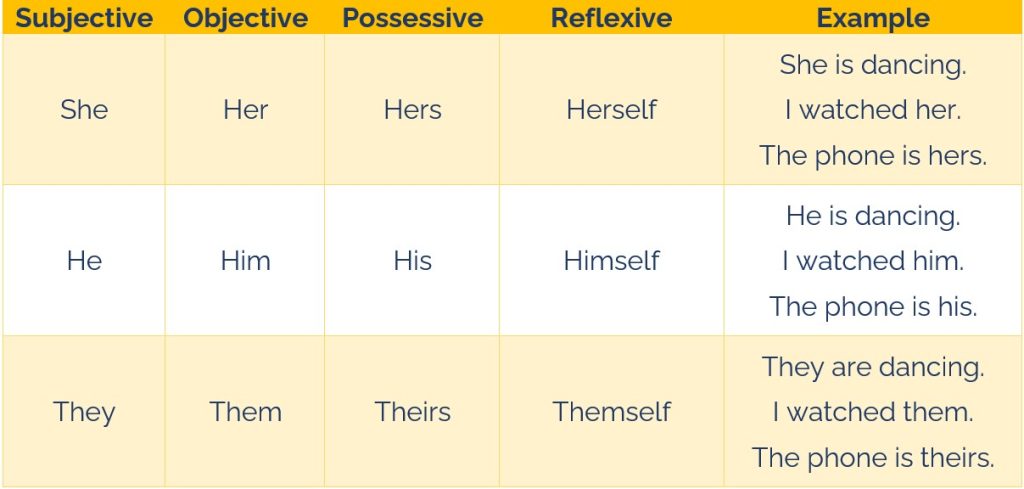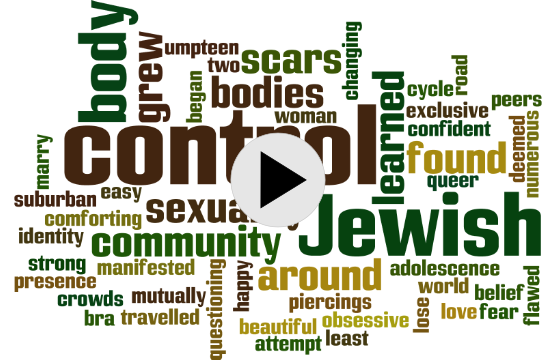Introduction
Imagine a world where we are all treated as a whole person, and not as a patient in front of a consulting desk who is identified by our outward appearance.
All of our lives are shaped and affected by the many components of our personal identities, by our ethnicity, gender, race, culture, religion and sexual preferences. These components are also factors in the way our lives develop and our care needs change as we make the shift from 11 to 25. This module looks at each of those components, and how they affect care.
Irrespective of how someone identifies, one’s care should not be compromised. Peoples’ individual differences should be respected and should never impact their healthcare.
What we'll be covering
We will look at how young people can be affected by issues of:
We will also:
Ethnicity, race, religion and culture
Religion and culture are important to a young person’s life, and can have a direct impact on their needs, their behaviour, their recovery, and their attitude toward health. The practice of faith and the respect of a patient’s religious and cultural needs can provide a great deal of comfort and benefit during times of crisis, such as illness.
It can be challenging for people if religion is not important for them, but other family members may insist that they conform with the social norms of their community. Being atheist or agnostic can lead to conflicts as well.
As part of patient care, fullness and healing, spiritual, religious and cultural issues should be addressed. Religions, morals, and cultural values can vary widely within a particular faith. An influential aspect of patient-centred care is exploring faith-based values and priorities with patients. Every individual’s beliefs should be respected, they may be of central importance to them as they live out their lives. Including items that are important to the patient, whether religious or not, deserves significant respect.
The young person is the expert when it comes to their own culture, religion, spirituality and, in particular, their own identity. Race and ethnicity may need to be discussed during appointments. There are conditions which happen more frequently in certain groups, for example sickle cell anaemia, some metabolic conditions. It is important to be aware of this, to make sure that the right treatment and advice is given. It is also important to recognise that in some cultures, certain conditions carry a great deal of stigma. Speaking about this openly and honestly will help the healthcare team and the young person understand each other better.
Race can prevent young people seeking help due to racial bias, e.g. with pain relief, which is less well treated people of colour presenting to the emergency department, than white people. Certain conditions, such as skin rashes look different in skin of colour and may lead to delay in treatment.
Race, skin colour and the associated understandings can be difficult to navigate. Having a trusting, mutually respectful care relationship is therefore very important.
Sexual preferences
Many young people have questions about relationships and sex, and would like to be able to discuss these with their parents or caregivers. It might seem difficult to have this conversation, but we have provided some handy tips below:
As a parent or caregiver:
- You shouldn’t have one big sex talk. Keep the discussion open and ongoing; it is best to have lots of smaller discussions whenever the topic arises.
- It is best to begin early and before the child is a teenager.
- Allow them to talk to you about anything that’s on their mind.
- If you discuss sex or relationships with a teenager, be sure to listen to what he, she or they have to say.
- Regardless of whether you agree with what they say or if you disagree with what they say, try to stay calm. Assure the young person that you trust them to make their own decisions while letting them know your opinions. Losing your temper or criticising them might make them feel that they cannot talk to you anymore.
- Young people need to have accurate information about sex and sexuality. It is better to avoid using jargon and slang, as some words mean different things to different generations.
- Check out that what you think you have communicated to the young person is actually what they have understood from you.
- If you think they haven’t understood, help them out by saying in a clear way how you feel. You can also show it by your facial expression and body language.
- Sometimes it helps to say “what I am hearing is….” and then summarise what you have understood, then invite the other person to do the same. It is surprising how often misunderstandings happen and nice when these can be clarified early.
- Notice if they seem to be feeling stressed or anxious and let them know you have noticed these feelings.
Talking about sex and relationships with a teenager won’t make them want to start having sex or encourage them to do so. However, it will help them look after their sexual health and avoid difficult or embarrassing situations when they do.
As a young person:
- remember, your parents were young once and may have had similar questions. However, they did grow up at a different time, when the way identity and preference were discussed were different
- start with smaller questions of chats, rather than the ‘big talk’, if you feel comfortable and safe to do so
- your friends are often a good group to talk to
- you can make an appointment with your GP or in a family planning clinic without having to tell your parents
- your healthcare team should be offering you an opportunity to talk to them by yourself, which gives you a chance to ask questions you may not want to discuss with your parents.
In healthcare open conversations about sexual health are important as certain treatments may affect contraceptive medication or may affect fertility or risk to the unborn child. If in doubt or worried – ask! Feeling different and struggling with your identity may affect your mental health – speaking about it is a path to getting – and offering help.
Gender
Young people today are all about finding themselves and figuring out how society sees them. Some young people don’t feel comfortable in the gender they were assigned at birth, or with the gender role that society expects them to fulfil.
Difficulties such as low mood, distress or worries are common in people whose gender identity does not align with the gender assigned at birth. Acceptance and support from family, friends, and healthcare providers can make a big difference. If you have questions about your gender identity or are not sure how to cope, it might be helpful to talk to someone or get some professional support.
If you’re confused about your gender identity and struggling to cope, it might be helpful to talk to someone or get some professional support.
Pronouns

Pronouns (he / she / they) are becoming one of the most recognized ways in which people identify their gender and how they prefer to be referred to, as well as signalling support for a gender-diverse and inclusive world. If it is safe for you to do so, present your own pronouns and describe your pronouns when you meet new people.
It’s a complex topic for some people but, if you want to know more, here is an explanatory video, that opens up some of the issues.
Understanding your right to be recognised (gender)
Although attitudes are improving, some people who do not naturally fit into society’s gender norms still face prejudice and stigma. This can take many forms, including gender-based verbal and physical harassment, direct and indirect discrimination, and victimisation.
Prejudice and stigma are frequently the result of a lack of understanding, knowledge, or misinformation. Many individuals have little understanding of what it means to be non-binary, gender-fluid, or transgender. As a result, they may make assumptions and overgeneralize, saying things like, “I’ve heard that all trans people are like ………..”
When there are strong false impressions about a particular group, individuals who feel they ‘belong’ to that identity may start believing the stereotypes well as. They may form firm opinions about how to be transgender or gender-diverse, as if there is just one way to be. As a result, people may feel ashamed of their gender identity and unhappy with themselves.
It can be unpleasant and frightening to encounter discriminatory attitudes and behaviours from others. It’s understandable to be upset when subjected to bigotry or discrimination. Being angry is most effective when it motivates us to take action (e.g. figuring out who might help us improve a situation) rather than staying irritated and miserable on our own. Talking to friends or relatives can sometimes help us come up with new ideas and a plan of action for dealing with the issue.
If you identify as gender-diverse or trans, prejudice is never acceptable and is not something you “just have to put up with.”
Understanding why things occur might help us feel more in control of the situation and provide us with ideas or options for responding with to it. Some trans young people have found that educating those around them is beneficial. For example, learning about the many diverse ways that different people have understood gender (which differ from our own ways of thinking) may motivate people to question some of their gender prejudices.
Neurodiversity
The Oxford English Dictionary describes Neurodiversity as ‘the range of difference in individual brain function and behavioural traits, regarded as part of normal variation in the human population.’ It is often used in the context of autism (autistic spectrum disorder) or ASD, but it also includes many other conditions.
Our brains could be viewed as computers, and all the complex wiring inside these. In the context of neurodiverse people the wiring could look different, and the ‘wiring’ could take different routes or be missing completely. This changing in wiring can impact peoples thinking, learning, and processing of information. Young people can experience any of a range of learning and thinking differences.
Lived experience
Summary
Identity and the recognition that every young person’s identity is unique to them; is important in all social settings, including healthcare. Respect should be shown to individual differences, and we should explore and reflect our acceptance of others and seek to understand those differences.
Identity is made up of many unique characteristics, including (but not exclusively):
- Gender
- Race
- Culture
- Religion (or beliefs)
- Sexuality.
Some people will associate themselves strongly against one or all of these and this make up the unique makeup of all individuals.
If you want to know more...
There are plenty of ways to find out more. One great one is to use your NHS account to access services online on your computer, tablet or mobile phone.
Find more information on the 11to25hub
Why not dip into one of our other modules, where you can find out about other aspects of healthcare transition in more detail.
Bust the jargon!
Whether you’re a young person, a parent or a professional you’ll have realised that there’s a lot of jargon in the health and social care systems. This jargon buster from Think Local Act Personal may help. Just type in a term…
External resources
Here are some more resources that you may find helpful, engaging and informative:
- A parents’ guide to supporting children and young people: ADHD is an animated series for parents of neurodiverse children and young people that aims to reflect the real-life experiences of children, young people and families
- Autism Included aims to facilitate culture change to foster authentic development for autistic children
- Fumble is a U.K. based website will lots of information for young people around sex
- What is the Equality Act? from the Equality and Human Rights Commission, describes the new Equality Act which came into force on 1 October 2010, bringing over 116 separate pieces of legislation into a legal framework to protect the rights of individuals and advance equality of opportunity for all. It provides a discrimination law which protects individuals from unfair treatment and promotes a fair and more equal society
- The Resources provided by The Association for Young People’s Health cover a range of topics relevant to Young People and identity
- The British Youth Council, now part of the National Youth Agency, created Youth Rights in Healthcare to inform young people and professionals working with them, about their rights
- The Tavistock and Portman NHS Foundation Trust Gender identity development service (GIDS) is a national specialised service for young people and their families, who experience difficulties in the development of their gender identity
- OutRight Action International have a resource which can help clarify the Terminology surrounding gender identity and expression.
How useful was this page?
Click on a star to rate it!
Average rating 5 / 5. Vote count: 8


